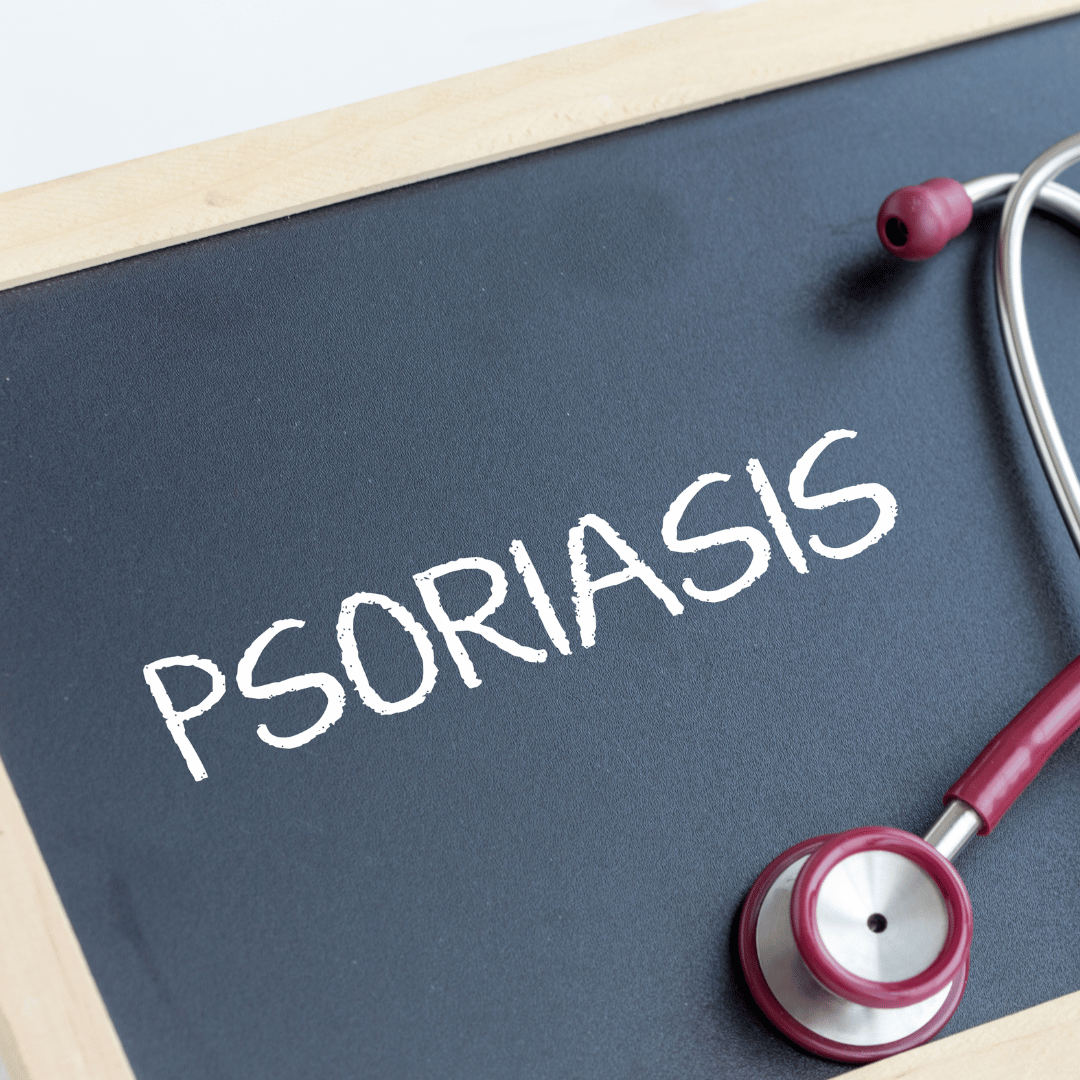Scalp psoriasis is a common problem that can disrupt daily life. It is a skin condition that affects many people and manifests itself as red, scaly patches, often associated with intense itching. In this article, we will explore scalp psoriasis in depth, detailing its causes, symptoms, and natural solutions to soothe and treat this condition.
But first, know that a good hair routine can greatly limit the appearance of itching related to psoriasis. At Madame La Présidente, we have formulated hair care products that will not only stop hair loss, stimulate its growth and strengthen it, but are also designed to maintain a healthy scalp. Our teas, shampoos and masks are real assets for healthy hair and a soothed scalp
Definition of scalp psoriasis
What is psoriasis?
Psoriasis is a chronic inflammatory skin disease characterized by accelerated renewal of skin cells, disrupting the skin's normal cycle. This excessive acceleration leads to an abnormal accumulation of cells on the skin surface, forming thick, scaly patches. These patches, often reddish or silvery in color, are the hallmark of the condition. They can appear on different areas of the body, including the scalp (one of the most common sites), elbows, knees and face (on the forehead). The scalp is particularly prone to psoriasis plaques, which can lead to itching, heavy scaling, and sometimes even noticeable cosmetic discomfort. Although not contagious, this condition can profoundly affect the quality of life of sufferers, requiring appropriate medical management to relieve symptoms and prevent flare-ups.
Characteristics specific to the scalp
Scalp psoriasis manifests itself as thick, red patches covered with silvery scales. These patches may be isolated or cover large areas of the scalp, sometimes extending beyond the hairline to the ears, nape of the neck and edges of the forehead. Itching is common, as is a burning or painful sensation. In addition, scratching the patches can lead to bleeding and temporary hair loss.
Psoriasis manifests itself in different forms, with skin lesions that can sometimes resemble dandruff. These attacks occur in flare-ups, making them difficult to manage.
Causes of scalp psoriasis
Scalp psoriasis is a complex condition that stems from a dysfunction of the immune system. In this condition, the immune system, which is supposed to protect the body against infection and other threats, turns against itself by mistakenly attacking healthy skin cells. This autoimmune phenomenon leads to rapid and excessive proliferation of skin cells, resulting in the characteristic plaques of psoriasis. These plaques are often accompanied by itching and scaling.
Several triggers can aggravate or initiate psoriasis. Stress, for example, is a well-known factor that can exacerbate symptoms by upsetting hormonal balance and increasing inflammation. Similarly, certain infections, such as streptococcal infections, can precipitate a flare-up of psoriasis. Hormonal changes, particularly those that occur during puberty, pregnancy or menopause, can also play a significant role in the onset or worsening of scalp psoriasis. In addition, certain medications, such as beta-blockers or anti-malarial drugs, are known for their potential to trigger or aggravate psoriasis.
The role of genetics in scalp psoriasis should not be underestimated. Numerous studies have shown that the condition is often hereditary, meaning that it can be passed down from generation to generation. People with a family history of psoriasis are therefore more likely to develop the condition. This genetic link suggests that specific mutations in certain genes may predispose an individual to dysfunction, leading to psoriasis.
Symptoms and signs of scalp psoriasis
The main symptoms of scalp psoriasis include :
Thick red patches: covered with silvery scales.
Itching: often intense and hard to ignore.
Burning sensation: may be localized or diffuse.
Hair loss: often temporary, resulting from itching and excessive scratching.
Bleeding: caused by scratching of patches.
Diagnosis of scalp psoriasis
Scalp psoriasis is usually diagnosed by a dermatologist following a clinical examination. The doctor can identify characteristic plaques on the patient during an attack of dermatosis and sometimes recommend a biopsy to confirm and exclude other conditions, such as other forms of disease like eczema or seborrheic dermatitis.
Natural remedies and lifestyle modifications
Several natural remedies and lifestyle adjustments help manage scalp psoriasis:
Use of medicated shampoos: shampoos containing coal tar or salicylic acid are often recommended. It reduces the appearance of dandruff.
Moisturizing: regularly apply nourishing oils or moisturizing creams to the scalp to soothe plaque formation.
Stress management: as stress is a triggering factor, we recommend adopting relaxation practices such as yoga or meditation.
Healthy diet: a balanced diet, rich in omega-3s, can help reduce inflammation and lesions.
Food supplements: certain vitamins, such as vitamin D, B7 (biotin) and E, can play a beneficial role in the management of psoriasis and hair health. They help reduce inflammation, promote hair growth and moisturize the scalp. Zinc's benefits for hair are also noteworthy: it helps regulate sebum production and maintain scalp health. Appropriate dietary supplements can therefore support hair health.
Hair routine: excessive heat can aggravate irritation and further dry out the skin. Instead, opt for air-drying or a soft towel to preserve natural moisture, and tell your hairdresser.
However, it's always best to consult a health professional for treatments tailored to your specific case.
F.A.Q
Conclusion
Scalp psoriasis is a chronic condition that affects many people, and can have a significant impact due to the itching, plaques and scales that form on the scalp. Although this condition is often localized to the scalp, it can also affect other parts of the body such as the elbows, knees, face and even the nails.
Psoriasis is a disease; symptoms include red patches covered with scales, often accompanied by intense itching. Identifying the causes of this dermatosis is essential to implementing suitable treatments, which may include shampooing, topical products, and routine modifications to soothe flare-ups and improve the overall appearance of the scalp.
For personalized support and tailored solutions, please consult our other articles and make an appointment with a dermatologist to discuss the best treatment options. The right products and comprehensive care can help you live better with psoriasis and maintain the health of your scalp and hair.


